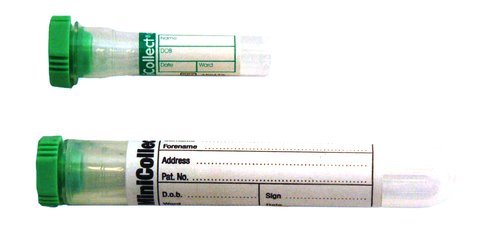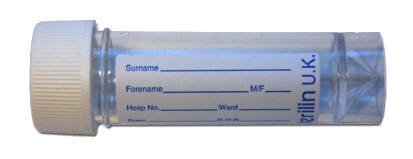Galactosaemia screen (GAL1PUT)
Chemical Pathology
Notes
Galactosaemia is an inherited metabolic disease caused by defects in galactose metabolism. The commonest form is classical galactosaemia, which is characterised by a deficiency of the enzyme galactose-1-phosphate uridyltransferase (GALT).
Classical galactosaemia is associated with progressive symptoms after commencing milk feeds such as vomiting and diarrhoea, jaundice, liver dysfunction, sepsis and bilateral cataracts which if untreated can result in life-threatening complications. Acute symptoms can be attributed to an accumulation of two metabolites, galactose-1-phosphate and galactitol, that increase when there is stress on the individual’s metabolic pathway.
A functional defect of the galactokinase enzyme results in a very rare but milder galactosaemic phenotype. Galactitol levels are elevated which leads to a characteristic finding of cataracts. These individuals do not accumulate galactose-1-phosphate and therefore do not suffer such severe renal and hepatic symptoms as seen in classical galactosaemia.
- Please note: galactose-1-phosphate uridylrtansferase is invalid as a screen for galactosaemia if the patient has received transfused erythrocytes. Urine galactitol is an alternative test to exclude classical galactosaemia in this situation - please alert the duty biochemist.
Sample requirements
Please collect samples early morning Monday to Friday only and send immediately to the laboratory.
For adults, blood taken into a 6mL lithium heparin tube.

For children, blood taken into a 2mL lithium heparin tube.

For neonates, blood taken into a 0.8mL minicollect lithium heparin tube

In the absence of liver problems if galactokinase deficiency is suspected then urine galactitol should be requested as the frontline investigation:
For urine galactitol: minimum 5mL urine in a 30mL white top Universal

Storage/transport
Do not centrifuge or freeze. Send at ambient temperature immediately to the laboratory. Sample needs to arrive at reference laboratory within 24 hours of collection.
Required information
Relevant clinical details including details of clinical presentation and details of any blood transfusion.
Turnaround times
Samples are sent for analysis at North Bristol NHS Trust with a result expected within 4 weeks, however if a child is acutely unwell, please alert the duty biochemist here so that special arrangements can be made with the assaying laboratory to obtain a result more quickly.
Reference ranges
The galactosaemia screening test will be reported as either not consistent with classical galactosaemia with the following comment:-
Result NOT consistent with CLASSICAL GALACTOSAEMIA. It is important that the patient has NOT received any transfused erythrocytes for this result to be valid.
NB: This does not exclude the possibility of carrier status or low activity variants.
Or; if quantitation is subsequently performed, then based on the activity of the enzyme galactose-1-phosphate uridyltransferase (GALT):-
- Classical galactosaemia: <5% GALT activity
- Carriers: approximately 50% GALT activity
- Duarte 2 /GALT galactosaemia: approximately 25% GALT activity
Further information
To learn more about classical galactosaemia, visit http://www.galactosemia.org/Understanding_Galactosemia.php
Page last updated 23/02/2015